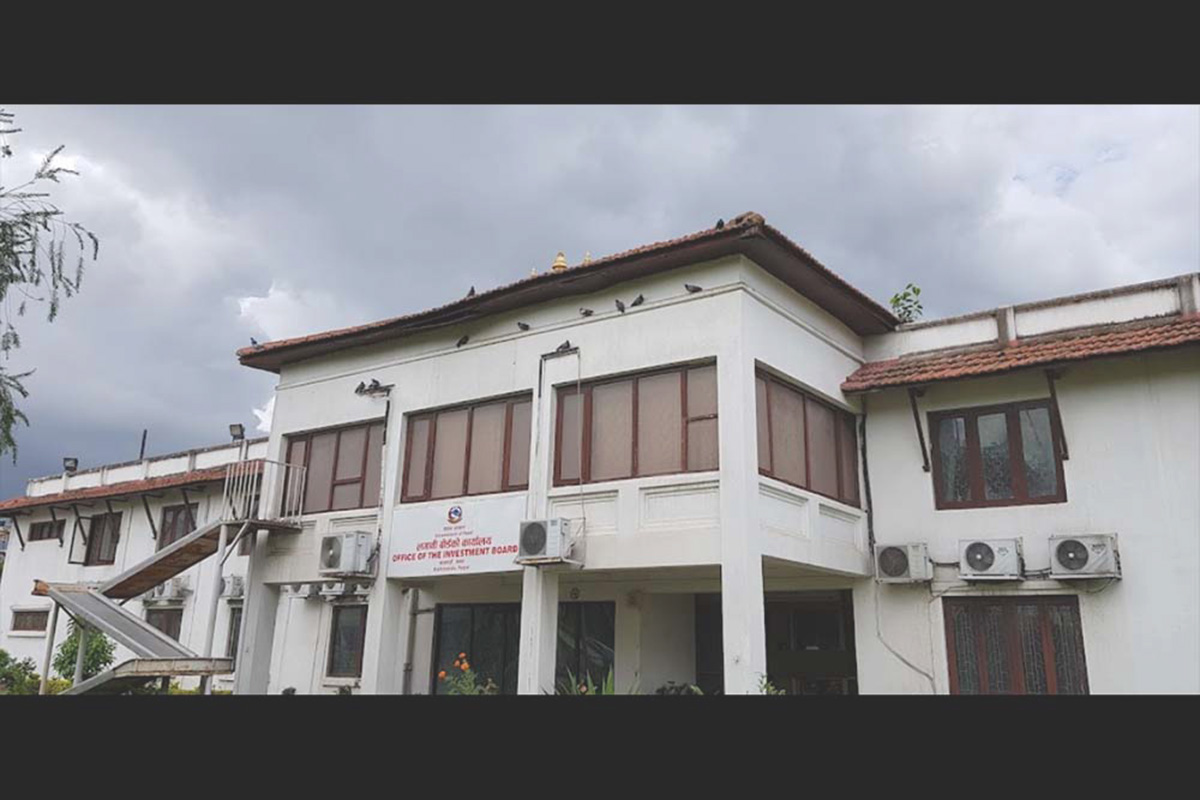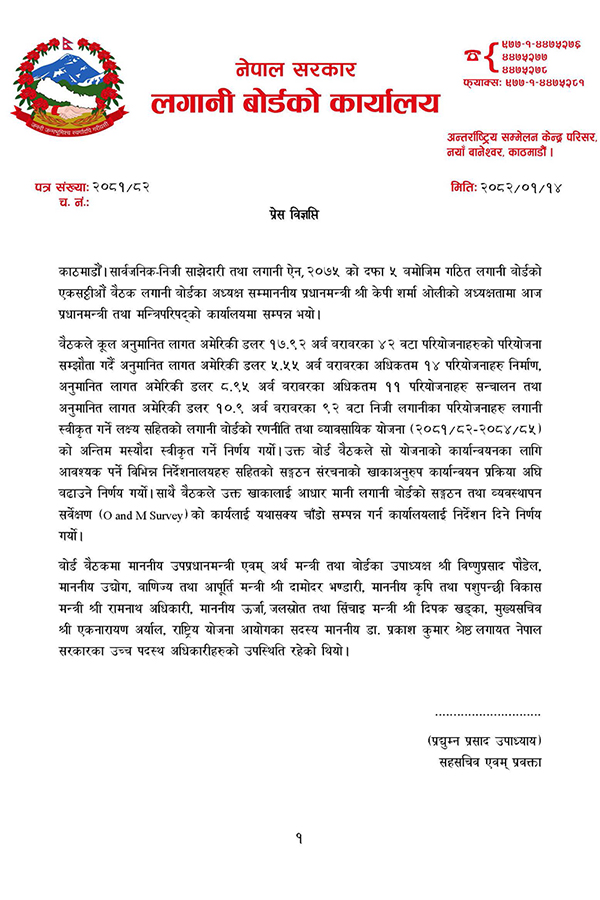
KATHMANDU: Investment Board Nepal (IBN) has approved its Strategy and Business Plan 2024-29 to achieve ambitious targets in infrastructure development under the public-private partnership (PPP) model. The IBN’s meeting last Sunday approved the document.
IBN Spokesperson Pradyumna Prasad Upadhyay stated that the plan and strategy had been prepared for work to be carried out in various projects over the next four years.
"The topics included in the strategy are very ambitious. The target has been set to bring in the possible minimum and maximum investment. We believe that if there is a good environment for investment, human resources are managed and necessary laws are enacted, then this level of investment can be mobilised," Upadhyay said.
According to him, the document will be crucial for changing the institutional structure of the board, strengthening the organisation and managing human resources.
According to IBN’s Strategic and Business Plan, 11 projects worth $8.95 billion are targeted for completion by the fiscal year 2028/29. However, even if all 11 projects are not completed as planned, the goal is to bring into operation at least five projects worth $4.7 billion.
Similarly, by 2028/29, seven projects costing at least $2.83 billion are expected to reach the construction stage. IBN has set the target of taking 14 projects worth up to $5.55 billion to the final stage of construction by this period.
A total of 57 projects worth up to $24.3 billion have been proposed for inclusion in the pipeline, with feasibility studies to be carried out in the next four years. Likewise, 52 projects worth $23.5 billion will move to the procurement stage.
According to IBN, 42 projects worth $17.95 billion will reach the negotiation stage of the Project Development Agreement (PDA) and Project Implementation Agreement (PIA) by this period.
Furthermore, the strategy states that 32 projects, with a total estimated cost of $15.7 billion, will advance to financial management and pre-development activities.
Based on the current status of projects to be implemented by the private sector and other bodies, the Board is likely to approve investments totalling up to $7.45 billion for a maximum of 67 private sector-led projects and $3.15 billion for 25 projects implemented by other entities over the next four years.
IBN has also prepared a draft organogram outlining various directorates to support the effective implementation of these investment plans.
These directorates include the Directorate of Planning, Administration and Financial Management, the Public-Private Partnership Directorate, the Investment Promotion and Facilitation Directorate, and the Project Development and Management Directorate.
The strategy stipulates that these directorates will require at least one joint-secretary-level employee.
The Board has already decided to conduct an Organisation and Management Survey of Investment Board Nepal.
Despite the ambitious goals outlined in its latest strategy, IBN’s achievements over the past one and a half decades have not been exceptional.
Since its establishment, the Board has accepted investments totalling Rs 1,200 billion for 38 projects. However, there is a significant gap between its accomplishments and its latest strategic plans.
The one-stop service centre established within the Office of Investment Board Nepal (OIBN) has remained non-functional, grappling with a shortage of adequate workforce resources and a lack of prompt implementation of Board decisions.
Despite provisions to establish a separate fund for IBN, this has not been possible for the past 12 years.
Similarly, the establishment of the Land Acquisition Fund and the Viability Gap Funding mechanism is still awaited. The Board continues to rely on donor agencies for the management of experts and employees.
By RSS





-1770211576.jpeg)

